 W
WUnited Nations Security Council resolution 1464, adopted unanimously on 4 February 2003, after reaffirming its commitment to the sovereignty, territorial integrity and unity of Côte d'Ivoire, the Council called for the implementation of the peace agreement signed at Linas-Marcoussis to end the civil war in the country.
 W
WUnited Nations Security Council resolution 1479, adopted unanimously on 13 May 2003, after reaffirming Resolution 1464 (2003) on the situation in Côte d'Ivoire and resolutions 1460 (2003) and 1467 (2003), the Council established the United Nations Mission in Côte d'Ivoire (MINUCI) after determining the situation in the country to be a threat to international peace and security in the region.
 W
WUnited Nations Security Council resolution 1497, adopted on 1 August 2003, after expressing concern at the situation in Liberia, the Council authorised a multinational force to intervene in the civil war to support the implementation of a ceasefire agreement using "all necessary measures".
 W
WUnited Nations Security Council resolution 1498, adopted unanimously on 4 August 2003, after reaffirming resolutions 1464 (2003) and 1479 (2003) on the situation in Côte d'Ivoire, the Council renewed authorisation given to the Economic Community of West African States (ECOWAS) and French forces operating in the country to assist the peace process for an additional six months.
 W
WUnited Nations Security Council resolution 1514, adopted unanimously on 13 November 2003, after reaffirming Resolution 1479 (2003) on the situation in Côte d'Ivoire and resolutions 1464 (2003) and 1498 (2003), the Council extended the mandate of the United Nations Mission in Côte d'Ivoire (MINUCI) until 4 February 2004.
 W
WUnited Nations Security Council resolution 1527, adopted unanimously on 4 February 2004, after recalling previous resolutions on the situation in Côte d'Ivoire, particularly resolutions 1464 (2003), 1498 (2003) and 1514 (2003), the Council extended the mandate of the United Nations Mission in Côte d'Ivoire (MINUCI) until 27 February 2004.
 W
WUnited Nations Security Council resolution 1528, adopted unanimously on 27 February 2004, after recalling resolutions 1464 (2003), 1479 (2003), 1498 (2003), 1514 (2003) and 1527 (2004) on the situation in Côte d'Ivoire, the Council established the United Nations Operation in Côte d'Ivoire (UNOCI) for an initial period of twelve months.
 W
WUnited Nations Security Council resolution 1572, adopted unanimously on 15 November 2004, after recalling Resolution 1528 (2004) on the situation in Côte d'Ivoire, the Council imposed an arms embargo on the country following recent violence and threatened further sanctions if Ivorian parties did not comply with their political commitments.
 W
WUnited Nations Security Council resolution 1584, adopted unanimously on 1 February 2005, after recalling resolutions 1528 (2004) and 1572 (2004) on the situation in Côte d'Ivoire, the Council, acting under Chapter VII of the United Nations Charter, strengthened an arms embargo against the country.
 W
WUnited Nations Security Council resolution 1594, adopted unanimously on 4 April 2005, after recalling previous resolutions on the situation in Côte d'Ivoire, particularly resolutions 1528 (2004), 1572 (2004) and 1584 (2005), the Council extended the mandate of the United Nations Operation in Côte d'Ivoire (UNOCI) until 4 May 2005.
 W
WUnited Nations Security Council resolution 1600, adopted unanimously on 4 May 2005, after recalling previous resolutions on the situation in Côte d'Ivoire, particularly resolutions 1528 (2004), 1572 (2004), 1584 (2005) and 1594 (2005), the Council extended the mandate of the United Nations Operation in Côte d'Ivoire (UNOCI) until 4 June 2005.
 W
WUnited Nations Security Council resolution 1603, adopted unanimously on 3 June 2005, after recalling previous resolutions on the situation in Côte d'Ivoire, the Council extended the mandate of the United Nations Operation in Côte d'Ivoire (UNOCI) until 24 June 2005.
 W
WUnited Nations Security Council Resolution 1609 was adopted unanimously on 24 June 2005. After recalling previous resolutions on the situation in Côte d'Ivoire, the Council extended the mandate of the United Nations Operation in Côte d'Ivoire (UNOCI) and supporting French forces for a further seven months until 24 January 2006.
 W
WUnited Nations Security Council resolution 1632, adopted unanimously on 18 October 2005, after recalling previous resolutions on the situation in Côte d'Ivoire, including resolutions 1572 (2004), 1584 (2005) and 1609 (2005), the Council extended the mandate of a three-person group monitoring the control of weapons until 15 December 2005.
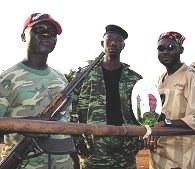 W
WUnited Nations Security Council resolution 1633, adopted unanimously on 21 October 2005, after recalling previous resolutions on the situation in Côte d'Ivoire, the Council demanded the implementation of the Linas-Marcoussis, Accra III and Pretoria peace agreements by the signatories to those accords, as well as all relevant Ivorian parties concerned.
 W
WUnited Nations Security Council Resolution 1643, adopted unanimously on 15 December 2005, after recalling previous resolutions on the situation in Côte d'Ivoire, the Council extended an arms embargo and travel and financial restrictions against the country until 15 December 2006, and included a ban on the trade of diamonds.
 W
WUnited Nations Security Council Resolution 1652, adopted unanimously on January 24, 2006, after recalling previous resolutions on the situation in Côte d'Ivoire, the Council extended the mandate of the United Nations Operation in Côte d'Ivoire (UNOCI) and supporting French forces until December 15, 2006. It was the first of 86 Security Council resolutions adopted in 2006, and the first of eight relating to the situation in Côte d'Ivoire.
 W
WUnited Nations Security Council Resolution 1657, adopted unanimously on February 6, 2006, after recalling previous resolutions on the situation in Côte d'Ivoire, including resolutions 1609 (2005), 1626 (2005) and 1652 (2005), the Council authorised a temporary redeployment of troops from the United Nations Mission in Liberia (UNMIL) to the United Nations Operation in Côte d'Ivoire (UNOCI).
 W
WUnited Nations Security Council Resolution 1682, adopted unanimously on June 2, 2006, after recalling previous resolutions on the situation in Côte d'Ivoire and the subregion, including resolutions 1652 (2005) and 1667 (2005), the Council authorised an increase in the strength of the United Nations Operation in Côte d'Ivoire (UNOCI).
 W
WUnited Nations Security Council Resolution 1708, adopted unanimously on September 14, 2006, after recalling previous resolutions on the situation in Côte d'Ivoire, particularly resolutions 1572 (2004), 1584 (2004), 1633 (2005) and 1643 (2005), the Council prolonged the mandate of an expert group monitoring an arms embargo against the country until mid-December 2006.
 W
WUnited Nations Security Council Resolution 1721, adopted unanimously on November 1, 2006, after recalling previous resolutions on the situation in Côte d'Ivoire, the Council extended the transitional mandates of President Laurent Gbagbo and Prime Minister Charles Konan Banny for no more than a year.
 W
WUnited Nations Security Council Resolution 1726, adopted unanimously on December 15, 2006, after recalling previous resolutions on the situation in Côte d'Ivoire, the Council extended the mandate of the United Nations Operation in Côte d'Ivoire (UNOCI) and supporting French forces until January 10, 2007.
 W
WUnited Nations Security Council Resolution 1727, adopted unanimously on December 15, 2006, after recalling previous resolutions on the situation in Côte d'Ivoire, the Council renewed an arms and diamond embargo on the country until October 31, 2007.
 W
WUnited Nations Security Council Resolution 1865, adopted unanimously January 27, 2009, after recalling resolutions 1739 (2007), 1765 (2007), 1795 (2008), 1826 (2008) and 1842 (2008) on the situation in Côte d'Ivoire and Resolution 1836 concerning Liberia, the Council renewed the mandate of the United Nations Operation in Côte d'Ivoire (UNOCI) until 31 July 2009 and the French forces that support it, while also reducing the missions strength to one battalion and endorsing the adjustment of UNOCI's posture and configuration.
 W
WUnited Nations Security Council Resolution 1911, adopted unanimously on January 28, 2010, after reaffirming resolutions 1880 (2009) and 1893 (2009), and reiterating its determination to bring about a credible election process in Côte d'Ivoire, the Council approved a four-month extension of the United Nations Operation in Côte d'Ivoire (UNOCI) until the end of May 2010, and a temporary increase in the size of the operation from 7,450 to 7,950 personnel.
 W
WUnited Nations Security Council Resolution 1924, adopted unanimously on May 27, 2010, after reaffirming resolutions 1893 (2009) and 1911 (2010) on the situation in Côte d'Ivoire and Resolution 1885 (2009) on Liberia, the Council extended the mandate of the United Nations Operation in Côte d'Ivoire (UNOCI) until June 30, 2010, pending further recommendations for its revision.
 W
WUnited Nations Security Council Resolution 1933, adopted unanimously on June 30, 2010, after reaffirming resolutions 1893 (2009), 1911 (2010) and 1924 (2010) on the situation in Côte d'Ivoire and Resolution 1885 (2009) on the situation in Liberia, the Council extended the mandate of the United Nations Operation in Côte d'Ivoire (UNOCI) and supporting French forces until December 31, 2010 and expanded UNOCI's mandate with provisions to strengthen its capacity to consolidate stability in the country.
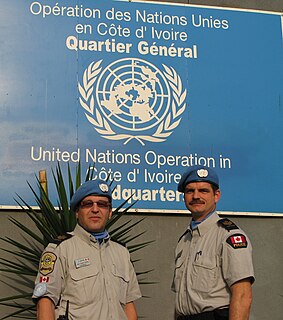 W
WUnited Nations Security Council Resolution 1942, adopted unanimously on September 29, 2010, after recalling Resolution 1933 (2010) on the situation in Côte d'Ivoire, the Council increased the military and police contingents of the United Nations Operation in Côte d'Ivoire (UNOCI).
 W
WUnited Nations Security Council Resolution 1946, adopted unanimously on October 15, 2010, after recalling previous resolutions on the situation in Côte d'Ivoire, including resolutions 1880 (2009), 1893 (2009), 1911 (2010) and 1933 (2010), the Council extended sanctions against the country, including an arms embargo and ban on the trading of diamonds, for a further six months.
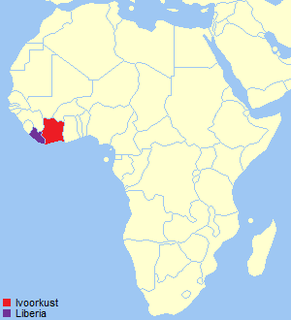 W
WUnited Nations Security Council Resolution 1951, adopted unanimously on November 24, 2010, after recalling previous resolutions on the situation in Côte d'Ivoire and the subregion, the Council authorised a temporary re-deployment of support from the United Nations Mission in Liberia (UNMIL) to the United Nations Operation in Côte d'Ivoire (UNOCI) for a period of four weeks.
 W
WUnited Nations Security Council Resolution 1962, adopted unanimously on December 20, 2010, after recalling previous resolutions on the situation in Côte d'Ivoire, including resolutions 1893 (2009), 1911 (2010), 1924 (2010), 1933 (2010), 1942 (2010), 1946 (2010) and 1951 (2010), the Council extended the mandate of the United Nations Operation in Côte d'Ivoire (UNOCI) until June 30, 2011 and urged all Ivorian parties to respect the outcome of the presidential election and the recognition of Alassane Ouattara as President.
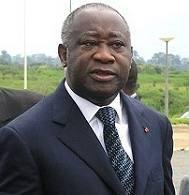 W
WUnited Nations Security Council Resolution 1967, adopted unanimously on January 19, 2011, after recalling previous resolutions on the situation in Côte d'Ivoire, including resolutions 1933 (2010), 1942 (2010), 1946 (2010), 1951 (2010) and 1962 (2010), the Council increased the number of forces in the United Nations Operation in Côte d'Ivoire (UNOCI) by 2,000. It was the first Security Council resolution adopted in 2011.
 W
WUnited Nations Security Council Resolution 1968, adopted unanimously on February 16, 2011, after recalling previous resolutions on the situation in Côte d'Ivoire, including resolutions 1933 (2010), 1942 (2010), 1946 (2010), 1951 (2010), 1962 (2010) and 1967 (2011), the Council extended the deployment of troops from the United Nations Mission in Liberia (UNMIL) to the United Nations Operation in Côte d'Ivoire (UNOCI) for an additional three months.
 W
WUnited Nations Security Council Resolution 1975, adopted unanimously on March 30, 2011, after recalling previous resolutions on the situation in Côte d'Ivoire, including resolutions 1572 (2004), 1893 (2009), 1911 (2010), 1924 (2010), 1933 (2010), 1942 (2010), 1946 (2010), 1951 (2010), 1962 (2010), 1967 (2011) and 1968 (2011), the Council demanded that Laurent Gbagbo step down as President and imposed sanctions on him and his close associates.
 W
WUnited Nations Security Council Resolution 1980, adopted unanimously on April 28, 2011, after recalling previous resolutions on the situation in Côte d'Ivoire, including resolutions 1880 (2009), 1893 (2009), 1911 (2010), 1933 (2010), 1946 (2010), 1962 (2010) and 1975 (2011), the Council extended an arms embargo, ban on the trade of diamonds and targeted financial and travel sanctions on Ivorian officials until April 30, 2012.
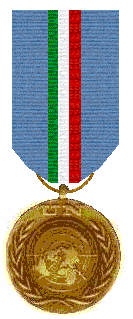 W
WUnited Nations Security Council Resolution 1992, adopted unanimously on June 29, 2011, after recalling previous resolutions on the situation in Côte d'Ivoire, including resolutions 1933 (2010), 1942 (2010), 1951 (2010), 1962 (2010), 1967 (2011), 1968 (2011), 1975 (2011), 1980 (2011) and 1981 (2011), the Council extended the temporary re-deployment of United Nations troops and equipment from the United Nations Mission in Liberia (UNMIL) to the United Nations Operation in Côte d'Ivoire (UNOCI) until September 30, 2011.
 W
WUnited Nations Security Council Resolution 2000, adopted unanimously on July 27, 2011, after recalling previous resolutions on the situation in Côte d'Ivoire, including resolutions 1933 (2010), 1942 (2010), 1951 (2010), 1962 (2010), 1967 (2011), 1968 (2011), 1975 (2011), 1980 (2011), 1981 (2011) and 1992 (2011), and Resolution 1938 (2010) on the situation in Liberia, the Council extended the mandate of the United Nations Operation in Côte d'Ivoire (UNOCI) until July 31, 2012.
 W
WUnited Nations Security Council Resolution 2045 was a Resolution relating to Ivory Coast on illegal diamond unanimously adopted on 26 April 2012.
 W
WUnited Nations Security Council Resolution 2062 was unanimously adopted on 26 July 2012. It related to the situation in Cote d'Ivoire and extended the mandate of the United Nations Operation in Côte d’Ivoire (UNOCI) until July 2013.